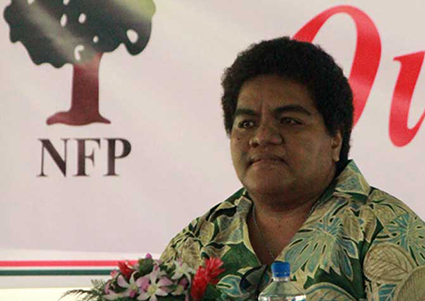
Serafina Silaitoga
SUVA (The Fiji Times/Pacific Media Watch): A petition campaign to review the 2010 Fiji Media Industry Development Decree, introduced four years after a military coup, will be sent around the country.
National Federation Party president Tupou Draunidalo said the petition was a way forward towards allowing a review of the Media Decree.
Labasa businessman and NFP vice-president Parmod Chand said the country needed a free media which was empowered to report anything for the sake of transparency and accountability.
"When we read the newspaper or watch television or even hear news on the radio, it is all about positive events and mostly about the government," he said.
"There is nothing about other things that happen which we only read about in the blogs and other sites.
"This shows that the media is not free to publish what they want and are restricted under the Media Decree."
SODELPA member Aseri Radrodro said the decree should be totally removed.
'Free media needed'
"We need a free media to allow coverage of everything that happens and it is for the sake of transparency and accountability."
On Friday, Media Industry Development Authority (MIDA) chairman Ashwin Raj said the media need to exercise self-reflexivity and not reproduce what some politicians were saying about the industry.
His reaction came after Opposition members questioned the freedom of the media in Fiji.
NFP leader Biman Prasad had stated earlier this month the media industry in Fiji was "regressive" because of the Media Decree which suppressed media freedom through the imposed restrictions and prescribed heavy penalties.
MIDA chairman Raj said: "The media is giving access to a plurality of voices other than the government and the honourable member of Opposition needs to give credit to the media .
"Read the letters to the editors and opinion columns.
"This is not to say that there is no media bias. It is glaring in some instances and MIDA is addressing that."
Raj said the "strong and salutary focus on ethics" in the Media Decree was "borrowed verbatim" from the previous media council.
"Our Constitution not only protects the freedom of the press but more specifically, protects whistleblowers — the confidentiality of journalistic sources — in line with the decisions of the European Court of Human Rights," he said.
This work is licensed under a Creative Commons Attribution-NonCommercial 3.0 New Zealand Licence.




